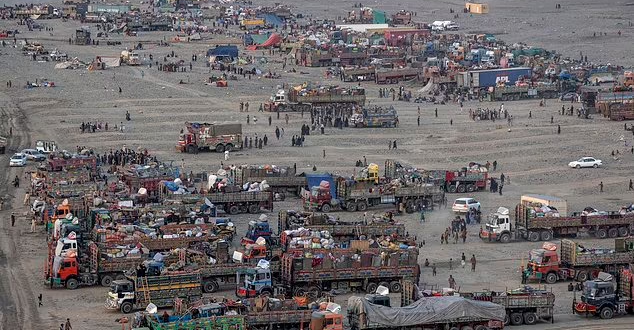AT News
KABUL – Pakistan has effectively closed the crucial Torkham border crossing into Afghanistan for truck drivers leaving dozens of trucks, laden with perishable goods like vegetables and fruits, stranded on both sides of the border.
According to the Taliban local officials, Pakistani officials at Torkham are now demanding passports and visas from Afghan drivers, a departure from the historical practice of allowing border passage without these documents. In response, Afghanistan has reciprocated by requesting the same from Pakistani drivers.
Director of the Information and Culture department in Nangarhar, Noor Mohammad Hanif, revealed that they are in talks with Pakistani officials to end the stalemate, with an imminent decision expected.
The Torkham crossing, a vital commercial artery and trade route to Central Asian countries for Pakistan, has faced intermittent closures, including a nine-day shutdown in September due to clashes between border forces.
Pakistan’s apprehension about the presence of the Pakistani Taliban in Afghanistan, allied with the Afghan Taliban, adds a layer of complexity to the situation. Pakistan alleges that Afghan soil provides sanctuary to Pakistani Taliban leaders and fighters, leading to increased attacks on Pakistani security forces. The Afghan Taliban government, however, denies permitting the Pakistani Taliban to launch attacks from its territory.
Recent diplomatic efforts, including the visit of senior Pakistani politician Fazlur Rehman to Kabul, aimed at easing tensions between the two nations, have occurred. Rehman’s visit marked a notable development, being the first by a senior Pakistani politician since the Taliban took control of Afghanistan in August 2021.
Tensions also persist regarding Pakistan’s expulsion of Afghans, with over half a million deported in recent months for lacking valid papers. This move adds strain to Pakistan’s historical hosting of around 1.7 million Afghan refugees, most of whom arrived during the Soviet occupation (1979-1989) and the Taliban’s previous rule.
 Afghanistan Times
Afghanistan Times




